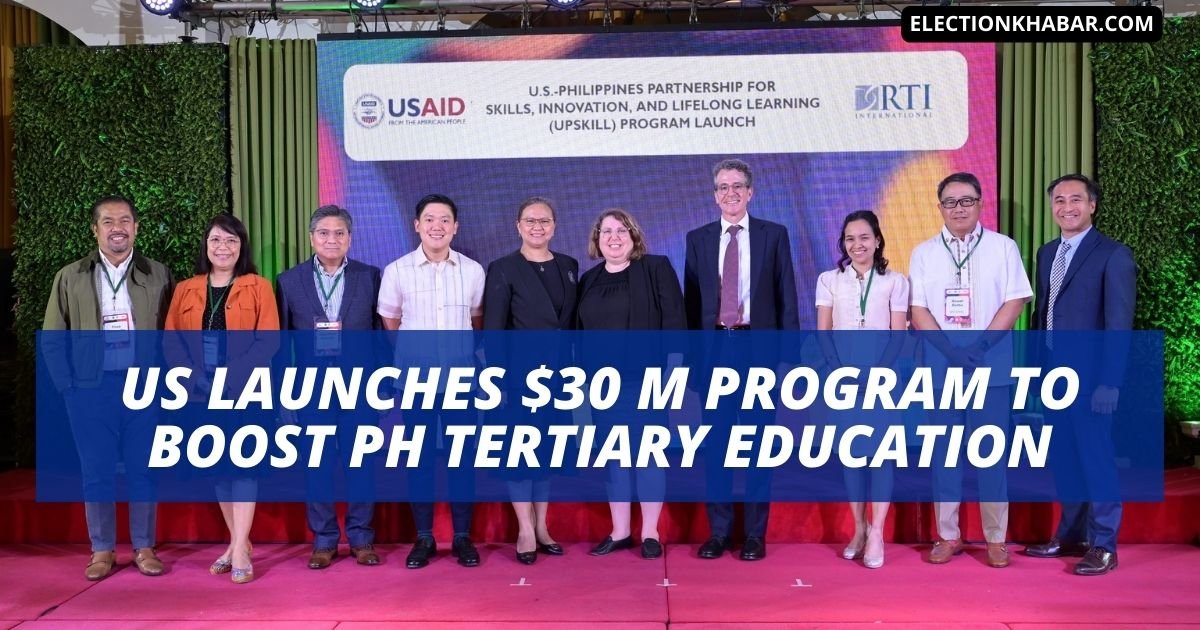The Philippine government has partnered with the United States to launch a $30 million (₱1.6 billion) education initiative called the U.S.-Philippines Partnership for Skills, Innovation, and Lifelong Learning (UPSKILL) program. The goal is to make Philippine college graduates more prepared for the global job market.
The 5-year program was announced jointly by President Ferdinand “Bongbong” Marcos Jr. and U.S. President Joseph Biden during Marcos’ state visit last May. It is being funded by the United States Agency for International Development (USAID), which works to boost economic and human development around the world.
On Tuesday, USAID officials gathered with leaders from the Philippine Commission on Higher Education (CHED) and other agencies to kick off UPSKILL.
“The challenges facing young people require education and training that set them up for career success,” said Sara Borodin, a USAID official overseeing Asia programs. She reaffirmed America’s commitment to helping transform Philippine higher education.
UPSKILL aims to promote business innovation and workforce skills at Philippine universities through new teaching methods and closer ties with U.S. schools. For example, it will bring U.S. experts to train Philippine teachers and update curriculums to align with global standards.
The program will also help schools provide more career counseling and internships. This is designed to make sure students graduate with skills that employers actually need. Schools will also get support on technology transfers and community outreach.
CHED Executive Director Cinderella Benitez-Jaro welcomed the opportunity to keep innovating Philippine education. “Together, we will demonstrate the compelling value of internationally recognized training, cooperative research, and lifelong learning modalities,” she said.
The consortium running UPSKILL includes leading U.S. universities like Arizona State, MIT, and North Carolina A&T State University. Top Philippine education names like Edukasyon.ph and Philippine Business for Education are also participating.
Workforce readiness is vital as automation transforms jobs
Education experts say it’s increasingly important for students to build skills suited for complex, team-based jobs involving technology and creative thinking.
Routine tasks are disappearing as artificial intelligence and robots become more advanced. That means even entry-level employees often need sharper analytical and communication abilities.
UPSKILL aims to nurture these adaptive skills for innovation-driven fields like business, digital services, and research.
The coronavirus pandemic also forced many classes online, accelerating demand for digital literacy and self-directed learning. Meanwhile, high youth unemployment continues holding back economic expansion.
Programs helping mentor students and connect school projects to real companies can make a big impact. This fills gaps between theory and practice while creating stronger professional networks.
Initiatives like UPSKILL hope to keep Philippine education internationally competitive, while harnessing talent to create jobs at home. Tight government budgets make public-private partnerships invaluable for schools aiming to provide premium training.
With Asia’s young mobile workforce and growing innovation, luring top US partners also offers mutual benefits. This could seed future research and commercialization pipelines between the two nations spanning decades to come.
